Poles
  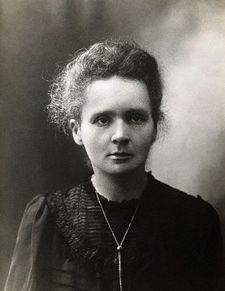 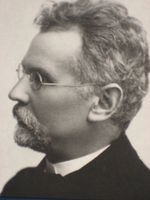 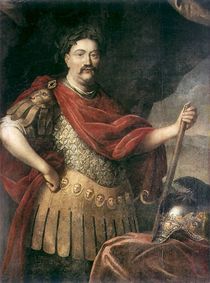 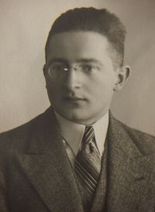   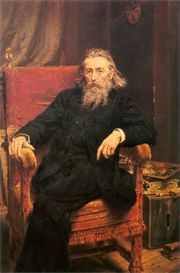 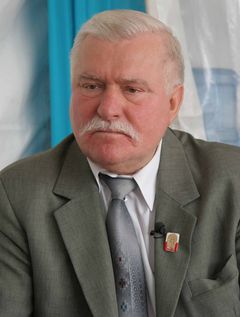  .jpg)   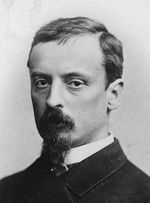   .jpg) Chopin • Copernicus • Skłodowska-Curie • Prus • John III Sobieski Rejewski • Kościuszko • Conrad • Piłsudski • Matejko Wałęsa • Kubica • Szymborska • Boruc • Domeyko Sienkiewicz • Pope John Paul II • Paderewski • Doda • Michalczewski |
|||||||||||||||||||||||||||||||||||||||||||||||||||||||||||||||||||||||||||||||||||||||||||||
| Total population | |||||||||||||||||||||||||||||||||||||||||||||||||||||||||||||||||||||||||||||||||||||||||||||
|---|---|---|---|---|---|---|---|---|---|---|---|---|---|---|---|---|---|---|---|---|---|---|---|---|---|---|---|---|---|---|---|---|---|---|---|---|---|---|---|---|---|---|---|---|---|---|---|---|---|---|---|---|---|---|---|---|---|---|---|---|---|---|---|---|---|---|---|---|---|---|---|---|---|---|---|---|---|---|---|---|---|---|---|---|---|---|---|---|---|---|---|---|---|
| 60 million (est.)[1] | |||||||||||||||||||||||||||||||||||||||||||||||||||||||||||||||||||||||||||||||||||||||||||||
| Regions with significant populations | |||||||||||||||||||||||||||||||||||||||||||||||||||||||||||||||||||||||||||||||||||||||||||||
|
|||||||||||||||||||||||||||||||||||||||||||||||||||||||||||||||||||||||||||||||||||||||||||||
| Languages | |||||||||||||||||||||||||||||||||||||||||||||||||||||||||||||||||||||||||||||||||||||||||||||
| Religion | |||||||||||||||||||||||||||||||||||||||||||||||||||||||||||||||||||||||||||||||||||||||||||||
|
Predominantly Roman Catholic with Eastern Orthodox, Protestant, and Jewish minorities. |
|||||||||||||||||||||||||||||||||||||||||||||||||||||||||||||||||||||||||||||||||||||||||||||
| Related ethnic groups | |||||||||||||||||||||||||||||||||||||||||||||||||||||||||||||||||||||||||||||||||||||||||||||
|
Czechs, Slovaks, Kashubians, Sorbs and other West Slavs |
The Polish people, or Poles (Polish: Polacy [pɔˈlat͡sɨ], singular Polak) nation, belongs to the Lechitic subgroup of west slavic languages group of Central Europe, living predominantly in Poland. The Poles are defined as the inhabitants of Poland and Polish emigrants irrespective of their ethnicity. Their religion is predominantly Roman Catholic. A wide-ranging Polish diaspora exists throughout Western and Eastern Europe, the Americas and Australia.
From the middle 15th-century into the early 19th-century, the name Poles (Polak) means only the of all gentry, called Szlachta. Poles, consisting only of middle and petty nobles, regardless of ethnic origin and religious beliefs[31]. All of these nobles formed the privileged class.
There is no commonly accepted definition of the Polish people. According to the preamble of the Constitution of the Republic of Poland, the Polish nation consists of all citizens of Poland. However, as in most European countries, many people limit the group to native speakers of the Polish language, people who share certain traditions, or people who share a common ethnic background originating from Poland. The name of the nation comes from Polish pole, meaning "field", descending from a Proto-Indo-European root.[32] Poles belong to the Lechitic subgroup of these ethnic people. The Polans of Giecz, Gniezno, and Poznań were one of the most influential tribes of Greater Poland and managed to unite (internal struggles) [33]many other West Slavic tribes in the area under the rule of what became the Piast dynasty, thus giving birth to a new state. The Polish word for a Polish person is Polak (masculine) and Polka (feminine); however, when the masculine form of this common noun is used in the English language (usually spelled as Polack) it is always offensive.[34] The feminine form typically refers in English to the style of music (i.e. Polka).
The inhabitants of Poland live in traditional and historically-geographical regions. There are seven major areas - Masovia, Pomerania, Greater Poland, Lesser Poland, Warmia, Mazury and Silesia.
Contents |
Genetics
Polish people show the characteristic R1a genes of a common male ancestorship at a very high frequency of 55.9-56.4%. Such large frequencies of R1a have been found in South Asia and Central Asia.[35]
Statistics
Polish people are the sixth largest national group in Europe.[36] Estimates vary depending on source, though available data suggest a total number of around 60 million people worldwide (with roughly 21 million living outside of Poland, many of whom are not of Polish ethnicity, but Polish nationals).[1] There are almost 39 million Poles in Poland alone. There are also Polish minorities in the surrounding countries including Germany, and indigenous minorities in the Czech Republic, Lithuania, Ukraine, and Belarus. There are some smaller indigenous minorities in nearby countries such as Moldova and Latvia. There is also a Polish minority in Russia which includes indigenous Poles as well as those forcibly deported during and after World War II; the total number of Poles in what was the former Soviet Union is estimated at up to 3 million.[37]
The term "Polonia" is usually used in Poland to refer to people of Polish origin who live outside Polish borders, officially estimated at around 10 to 20 million. There is a notable Polish diaspora in the United States, Canada, and Brazil. France has a historic relationship with Poland and has a relatively large Polish-descendant population. Poles have lived in France since the 1700s. In the early 20th century, over a million Polish people settled in France, mostly during world wars, among them Polish émigrés fleeing either Nazi occupation or later Soviet rule.
In the United States a significant number of Polish immigrants settled in Chicago, Ohio, Detroit, New York City, Orlando, Pittsburgh, Buffalo, and New England. The highest concentration of Poles in the United States is in New Britain, Connecticut. The majority of Polish Canadians have arrived in Canada since World War II. The number of Polish immigrants increased between 1945 and 1970, and again after the fall of Communism in 1989. In Brazil the majority of Polish immigrants settled in Paraná State. The city of Curitiba has the second largest Polish diaspora in the world (after Chicago) and Polish music, dishes and culture are quite common in the region. In recent years, since joining the European Union, many Polish people have emigrated to countries such as Ireland, where an estimated 200,000 Polish people have entered the labour market. It is estimated that over half a million Polish people have immigrated to the United Kingdom. The Polish community in Norway has increased dramatically and has grown to a total number of 120,000, making Polish people the largest immigrant group in Norway.
Before World War II many Polish Jews became followers of Zionism and subsequently emigrated to the British Mandate of Palestine. Following the Holocaust, the vast majority of surviving Polish Jews moved to Israel, contributing to the largest single place of origin of Israeli Jews.
Polish tribes
The following is a list of Polish tribes—tribes which constituted the lands of Poland in the Early Middle Ages, at the beginning of the Polish state. Some of them have remained separate ethnicities while others have been assimilated into the culture of Poland.[38][39][40]
|
|
- (for ethnic Poles living abroad see Polonia, for those living and working in the United Kingdom see Polish British)
See also
|
|
References
- ↑ 1.0 1.1 1.2 Świat Polonii, witryna Stowarzyszenia Wspólnota Polska: „Polacy za granicą” (Polish people abroad as per summary by Świat Polonii, internet portal of the Polish Association Wspólnota Polska)
- ↑ Excel spreadsheet from Polish Central Statistical Office
- ↑ http://www.census.gov/prod/2004pubs/c2kbr-35.pdf
- ↑ http://www.wspolnota-polska.org.pl/index.php?id=pwko
- ↑ (German) Bevölkerung mit Migrationshintergrund - Ergebnisse des Mikrozensus 2005 Statistisches Bundesamt Deutschland (German text about migrants in Germany) 886 KiBPDF.
- ↑ http://www40.statcan.gc.ca/l01/cst01/demo26a-eng.htm
- ↑ http://www.prezydent.pl/
- ↑ (English) Poles in the UK, Polish Express; source: British Office for National Statistics, see section: "Poles add up to profit for Craig." Retrieved from the Internet Archive, December 9, 2009
^ (English) "UK lets in more Poles than there are in Warsaw", Steve Doughty, Daily Mail; see also: "Record numbers leave Britain as Poles head home - but new arrivals increase to half a million" by James Slack, Daily Mail, November 27, 2009. Please note: British Office for National Statistics recorded the number of Poles who have travelled to the UK in 2006 at over 2,000,000; they are not to be mistaken for permanent residents. - ↑ http://edant.clarin.com/diario/2004/04/27/t-749506.htm
- ↑ Poles in Belarus
- ↑ Population by ethnicity according to 2009 Lithuania Population and Housing Census data
- ↑ Poles in Ireland
- ↑ Poles in Ukraine
- ↑ Aftenposten.no: - 120.000 polakker i Norge (Innenriks)
- ↑ Istat.it
- ↑ Ine.es
- ↑ CIA World Factbook
- ↑ Vlada.cz
- ↑ http://www.wspolnota-polska.org.pl/index.php?id=pwko
- ↑ Ide.go.jp
- ↑ http://www2.cesla.uw.edu.pl/index.php?option=com_content&task=view&id=193&Itemid=77
- ↑ http://www.cbs.nl/NR/rdonlyres/CCD504EA-9D41-40C2-AE28-BFB0A51C2045/0/2005k3b15p096art.pdf
- ↑ http://www.wspolnota-polska.org.pl/index.php?id=dubd2
- ↑ http://www.immi.se/alfa/p.htm
- ↑ Poles in AustriaPDF
- ↑ Mannfjöldi eftir fæðingarlandi 1981-2008: Pólland
- ↑ http://www.joshuaproject.net/countries.php?rog3=DA&sf=population&so=asc
- ↑ 2004 Moldovan census, including Transnistria
- ↑ 2002 Romanian census.
- ↑ http://www.helsinki.polemb.net/index.php?document=46
- ↑ Daniel Beauvois. Historia Europy Środkowo-Wschodniej. T. 1, 2000. 267.
- ↑ "fr. pal, pele, altd. pal, pael, dn. pael, sw. pale, isl. pall, bre. pal, peul, it. polo, pole, pila, [in:] A dictionary of the Anglo-Saxon languages. Joseph Bosworth. S.275.; planus, plain, flat; from Indo- Germanic pele, flat, to spread, also the root of words like plan, floor, and field. [in:] John Hejduk. Soundings. 1993. p. 399"; "the root pele is the source of the English words "field" and "floor". The root "plak" is the source of the English word "flake" [in:] Loren Edward Meierding. Ace the Verbal on the SAT. 2005. p. 82
- ↑ Gerard Labuda. Fragmenty dziejów Słowiańszczyzny zachodniej, t.1-2 p.72 2002; Henryk Łowmiański. Początki Polski: z dziejów Słowian w I tysiącleciu n.e, t. 5 p.472; Stanisław Henryk Badeni, 1923. p. 270
- ↑ polack - Definitions from Dictionary.com
- ↑ Semino, A; Passarino G, Oefner PJ, Lin AA, Arbuzova S, Beckman LE, De Benedictis G, Francalacci P, Kouvatsi A, Limborska S, Marcikiae M, Mika A, Mika B, Primorac D, Santachiara-Benerecetti AS, Cavalli-Sforza LL, Underhill PA (2000). "The Genetic Legacy of Paleolithic *** sapiens sapiens in Extant Europeans: A Y Chromosome Perspective" [1](PDF). Science 290 (5494): 1155–59. doi:10.1093/molbev/msi185. PMID 15944443 .
- ↑ NationMaster.com 2003-2008. People Statistics: Population (most recent) by country. Retrieved 2008-01-25.
- ↑ Gil Loescher, Beyond Charity: International Cooperation and the Global Refugee Crisis, published by the University of Oxford Press US, 1993, 1996. ISBN 0195102940. Retrieved 12-12-2007.
- ↑ Raymond Breton, National Survival in Dependent Societies: Social Change in Canada and Poland, McGill-Queen's Press - MQUP, 1990, p. 106,ISBN 0886291275 Google Books
- ↑ John Blacking, Anna Czekanowska, Polish Folk Music: Slavonic Heritage - Polish Tradition - Contemporary Trends, Cambridge University Press, 2006, p. 3, ISBN 0521027977 Google Books
- ↑ Jerzy Strzelczyk [in:] The New Cambridge Medieval History, Cambridge University Press, 1999, p. 521-522 ISBN 0521364477 Google Books; Robert Machray, The Problem of Upper Silesia, G. Allen & Unwin ltd. 1945, p. 13 Google Books; Paul Wagret, Helga S. B. Harrison, Poland, Nagel, 1964, p. 231. Google Books
External links
- Movie (on-line)
- Other
|
||||||||